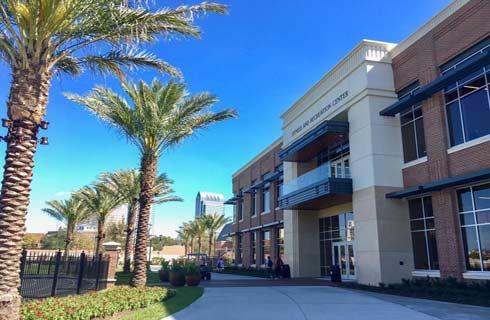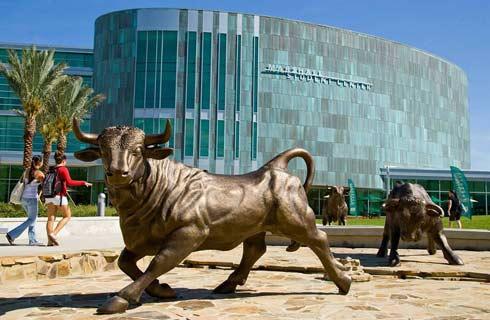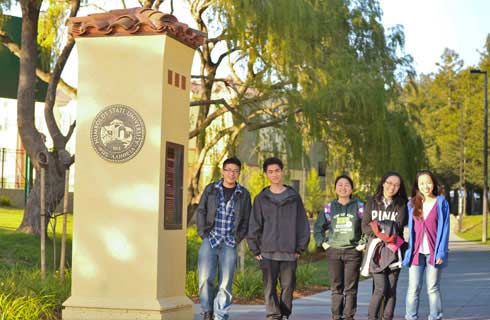社会科学(荣誉)文学士(犯罪学和定量方法)
BA (Hons) Criminology and Data Analytics

学历文凭
Bachelor Degree with Honours

专业院系
School of Social Sciences

开学时间

课程时长

课程学费

国际学生入学条件
IDP—雅思考试联合主办方

雅思考试总分
- 雅思总分:
- 托福网考总分:
- 托福笔试总分:
- 其他语言考试:
CRICOS代码: C856
申请截止日期: 请与IDP联系 以获取详细信息。
课程简介
On the BA Social Sciences in Criminology and Data Analytics course, you learn theories about the nature and determinants of crime, but also how to translate these theories into empirical questions that can be studied using real-life data. Specifically, you learn data analytic and data science techniques to evaluate the effectiveness of anti-crime policies, understand criminal behaviour, predict and classify criminal phenomena and describe and analyse networks of relationships between criminals, criminal organisations and society. By completing the core and optional units, you will gain sought after skills, including: how to collect, describe and visualise data; how to build quantitative models to explain phenomena; how to quantitatively evaluate the effectiveness of policies; how to map and analyse complex social networks; how to implement key machine learning algorithms; how to implement data analytic techniques and data science algorithms using statistical software including R, as well as proprietary packages such as SPSS. The pathway emphasises the application of modern data analytic methods to real-life problems. Although, you will have the opportunity to learn some of the underlying theory to progress further in your career to more advanced postgraduate courses and more challenging scenarios in policy and industry.
相关申请
 预科
预科 奖学金
奖学金 实习机会
实习机会 在校学习
在校学习 跨境学习
跨境学习 校园授课-线上开始
校园授课-线上开始 在线/远程学习
在线/远程学习
开学时间&学费
学费信息仅供参考,请与IDP联系以获取详细信息
| 开学时间 | 时长 | 学费 | 地点 |
|---|
学校排名

世界排名57
数据源:
泰晤士高等教育世界大学排名
关于曼彻斯特大学

曼彻斯特大学,简称曼大,是一所门类齐全、科系众多的综合性大学,位于英格兰中北部的英国第二繁华城市曼彻斯特。校内现有来自154个国家的近四万名学生就读一千多个学位课程,教职员超过一万人,其中很多是享誉世界的科学家。如今的曼彻斯特大学是由始建于1824年的曼彻斯特理工大学和始建于1851年的曼彻斯特维多利亚大学这两所世界一流学府于2004年合并而成。曼大以教学严谨、学术风气自由著称,创新作为教学和学术研究的主导思想,已形成传统。世界上很多重大成就都出自这里,如原子的分裂、世界上第一台可存储程序计算机的发明以及石墨烯的发现等。曼大的教学质量始终位居英国独立教学质量评估的前列,每年的全球大学排名也始终位居世界前列,校友包括25位诺贝尔奖得主和众多国际名人。曼彻斯特大学在英国乃至全球都享有极高的声誉:2015/16QS世界大学排名全球第33位(英国第7位),2015年上海交大世界大学学术排名(ARWU)全球第41位(英国第5位)。在2014年英国官方组织的研究卓越框架(REF)评估中,曼彻斯特大学综合实力位居全英第5名。在位于德国的国际高等教育发展中心(CHE)2010年发布的欧洲大学“卓越排名”(CHE Excellenceranking)中,曼大是欧洲仅有的 七大学科(生物、化学、经济学、数学、物理、政治学、心理学)均被评定为“优秀”的大学之一。星期日泰晤士报曾评论道:“曼彻斯特大学几乎在所有学科都有着可敬的声望,其中又以经济学、、人文、社会学与社会科学、生命科学、工程为最。”
本校相关课程

国际研究文学士(荣誉)学位
学历文凭
Bachelor Degree with Honours
开学日期
课程费用总额


理学学士(荣誉)地理国际研究
学历文凭
Bachelor Degree with Honours
开学日期
课程费用总额


荣誉建筑学士学位
学历文凭
Bachelor Degree with Honours
开学日期
课程费用总额


地理
学历文凭
Bachelor Degree with Honours
开学日期
课程费用总额


硕士国际发展:政治
学历文凭
Masters Degree (Taught)
开学日期
课程费用总额


理学硕士全球城市发展与规划
学历文凭
Masters Degree (Taught)
开学日期
课程费用总额

其他相关课程

King's International Foundation - Mathematics and Physics (Extended)
 伦敦国王学院
伦敦国王学院学历文凭
Foundation for Undergraduate
开学日期
课程费用总额


Master of Science (by Dissertation) Mathematics
 埃塞克斯大学
埃塞克斯大学泰晤士高等教育世界大学排名:339
学历文凭
Masters Degree (Research)
开学日期
课程费用总额


理学学士(高级)(荣誉学位)-应用数学
 悉尼大学
悉尼大学泰晤士高等教育世界大学排名:54
学历文凭
Bachelor Degree with Honours
开学日期
课程费用总额


理学士(荣誉)-金融数学和精算学
 爱尔兰国立科克大学
爱尔兰国立科克大学泰晤士高等教育世界大学排名:378
学历文凭
Bachelor Degree with Honours
开学日期
课程费用总额


研究生文凭-数学教育
 怀卡托大学
怀卡托大学学历文凭
Postgraduate Diploma
开学日期
课程费用总额


理学士(荣誉)数学
 亚伯大学
亚伯大学泰晤士高等教育世界大学排名:608
学历文凭
Bachelor Degree with Honours
开学日期
课程费用总额










